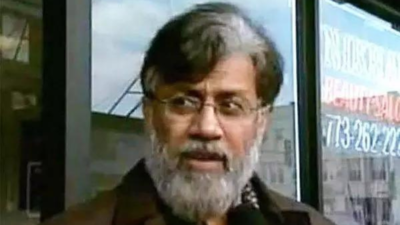
NEW DELHI: More than 15 years after the deadly 26/11
Mumbai terror attacks
, one of its key accused, Tahawwur Hussain Rana, has been extradited to India from the United States.
The Pakistan-born Canadian national and close associate of convicted terrorist
David Coleman Headley
arrived in Delhi on a special flight on Thursday.
Rana’s extradition marks a major diplomatic and legal milestone in India’s long-standing efforts to bring the conspirators of the 2008 attacks to justice. The NIA had filed a chargesheet against Rana in 2011 and has now taken over his custody for further proceedings.
A special trial for a special case
The Union home ministry has appointed senior advocate Narender Mann as special public prosecutor for the case. Mann will conduct the trial and other related legal matters under NIA case RC-04/2009/NIA/DLI for a period of three years.
The ministry’s late-night notification mentioned: “The central government hereby appoints Narender Mann, advocate as special public prosecutor… before the NIA Special Courts at Delhi and Appellate Courts, for a period of three years… or till the completion of trial of the said case, whichever is earlier.”
The man behind the scenes
Rana, a former Pakistani military doctor who later became a Canadian citizen, ran a Chicago-based immigration services firm that allegedly served as a front for Lashkar-e-Taiba (LeT) operatives. He was convicted in the US in 2011 for supporting terrorism, but acquitted of direct involvement in the Mumbai attacks due to lack of jurisdiction. However, India has maintained that Rana played a critical role in facilitating David Headley’s reconnaissance missions in Mumbai ahead of the carnage.
The 26/11 attacks, carried out by 10 LeT terrorists, claimed 166 lives and left over 300 injured in a 60-hour siege that targeted Mumbai’s CST railway station, the Taj and Oberoi hotels, and the Chabad House Jewish centre. The attacks brought India and Pakistan to the brink of war and reshaped global counter-terrorism efforts.
Pakistan disowns Rana
Interestingly, as Rana was being extradited, Pakistan distanced itself from him. “Tahawwur Rana has not renewed his Pakistani documents for over two decades. His Canadian nationality is very clear,” Pakistani foreign ministry spokesperson Shafqat Ali Khan told local media. This, despite Pakistan officially allowing dual citizenship with Canada.
Legal journey from the US
The extradition was made possible after the US Supreme Court rejected Rana’s emergency petition to halt the transfer. The US Secretary of State had signed the surrender warrant on February 11, and after months of legal resistance, the final green light was given in April.
The NIA had formally sought Rana’s extradition in 2009, and the case against him includes charges under the Indian Penal Code, Unlawful Activities (Prevention) Act, and the SAARC Convention on Suppression of Terrorism. The agency also awaits a response from Pakistan to its Letter Rogatory.
Justice on the horizon
“Rana’s extradition is a significant development in our pursuit of justice for the 26/11 victims,” a senior NIA official said. The agency now gears up for a high-profile trial that could unearth more details about the planning and support networks behind one of the worst terror attacks on Indian soil.
While David Headley continues to serve a 35-year sentence in the US, Rana’s arrival in India reopens a critical chapter in the quest for accountability, justice—and closure.
.png)
 German (DE)
German (DE)  English (US)
English (US)  Spanish (ES)
Spanish (ES)  French (FR)
French (FR)  Hindi (IN)
Hindi (IN)  Italian (IT)
Italian (IT)  Russian (RU)
Russian (RU)  1 week ago
9
1 week ago
9









Comments